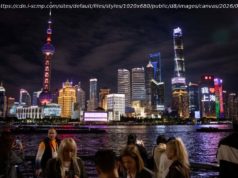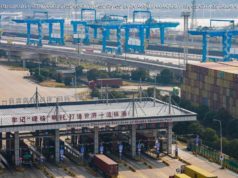A federal appeals court on Friday upheld most of a Bay Area businessman’s economic espionage convictions for selling DuPont technology to China for the production of a valuable white pigment. Walter Liew, 59, of Orinda was convicted in 2014 of 10 felony charges of economic espionage,…
A federal appeals court on Friday upheld most of a Bay Area businessman’s economic espionage convictions for selling DuPont technology to China for the production of a valuable white pigment.
Walter Liew, 59, of Orinda was convicted in 2014 of 10 felony charges of economic espionage, theft of trade secrets, and obstruction of justice and tampering with a witness and evidence, and was sentenced to 15 years in prison and a $28 million fine.
The Ninth U. S. Circuit Court of Appeals in San Francisco overturned the obstruction and witness-tampering convictions Friday, but said the other convictions were supported by evidence that the information Liew disclosed was technology that was not generally known or readily available to the public.
The ruling could reduce Liew’s sentence by five years, his term for the overturned convictions. But the court also ruled that prosecutors had improperly failed to provide Liew’s lawyers with notes of FBI interviews with co-defendant Tim Spitler, a Liew consultant and former DuPont engineer who committed suicide in 2012, shortly before he was scheduled to plead guilty to conspiracy.
The court told the trial judge in the case to decide whether the withheld evidence could have affected Liew’s remaining convictions. He was arrested after his indictment in 2011 and has spent more than five years in custody.
The pigment, titanium dioxide, is extracted from ore and used in products that range from paint and plastics to the filling in Oreo cookies. DuPont, the world’s largest producer of the substance, led in the development of a chloride manufacturing process for titanium dioxide in the 1940s and moved production to its spinoff chemical company, Chemours, in 2015.
China, which was producing the pigment with a different and more expensive method, balked at paying DuPont’s $75 million licensing fee in the 1990s, the court said. Instead, prosecutors said, Chinese government factories signed contracts with Liew’s companies in 2004 and 2009 for $26 million to develop chloride-technology production plants.
Liew, an electrical engineer, and his wife, Christina Liew, formed their company, later renamed USA Performance Technologies, in the early 1990s and hired Spitler and Robert Maegerle, two former DuPont engineers with experience in titanium dioxide production.
Prosecutors said the engineers provided confidential DuPont documents and other information that allowed Lieu to export DuPont’s technology to China. Defense lawyers argued that the engineers worked independently, using their experience and technology DuPont unveiled when it built a plant for Sherwin-Williams in 1967.
An Oakland federal jury found that the technology had been stolen and convicted both Liew and Maegerle, who was sentenced to 2½ years in prison for economic espionage. Christina Liew pleaded guilty to evidence-tampering and was placed on probation.
In Friday’s ruling, the court said the jury reasonably concluded that Walter Liew had sold technology to a foreign government that DuPont had sought to keep confidential and was not used in the 1967 plant.
The evidence supported a verdict that “DuPont took reasonable measures to protect its technology, and that such technology was not readily ascertainable by or generally known to the public, ” Judge John Owens said in the 3-0 decision.
Defense lawyer Dennis Riordan questioned the court’s assessment of the information DuPont released in building the Sherwin-Williams plant. He said it included the same type of technology that Liew was convicted of illegally disclosing.
“The holding that information can be sold to a competitor who’s free to publish it on WikiLeaks or sell it to another competitor, yet can still remain a trade secret, appears to work a fundamental change in the law of trade secrets, ” Riordan said. He said Liew would consider a further appeal.
The court said Liew was wrongly convicted of obstructing justice for declaring in a civil suit by DuPont that he had never misappropriated any information from the company — a routine denial that does not constitute obstruction, Owens said. He said Liew’s advice to another employee that he shouldn’ t testify about DuPont was the same type of advice that many lawyers would give, and did not amount to witness tampering.






